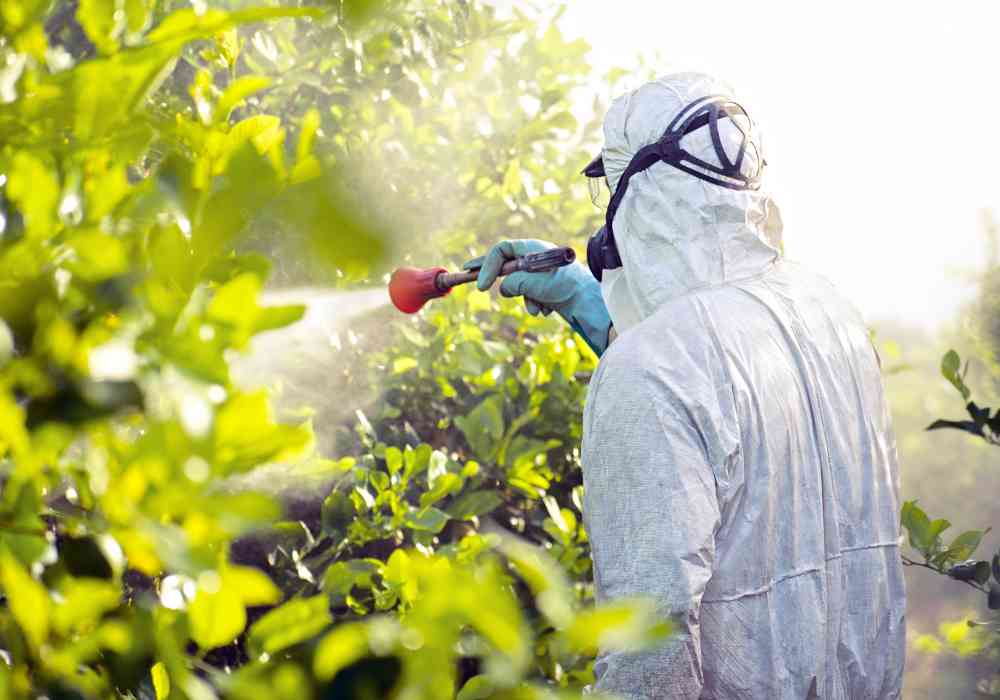
Food service establishments, such as restaurants, cafes, and bars, often face pest problems due to their accessibility to food and water sources. To prevent and control these pests, pesticides can be applied. However, not just anyone can handle and apply pesticides in these establishments.
There are specific regulations and guidelines set by government agencies, such as the Environmental Protection Agency (EPA), to ensure the safety and proper use of pesticides in food service establishments.
Key Takeaways
- Only individuals with the appropriate qualifications and certifications can apply pesticides in a food service establishment.
- Government agencies, such as the EPA, have set regulations for the use of pesticides in these establishments to ensure safety and proper use.
Regulations and Certifications for Pesticide Application
As a professional copywriting journalist, it is essential to understand the regulations and certifications required for pesticide application in food service establishments. The Environmental Protection Agency (EPA) and state governments regulate the use of pesticides to ensure their safe application and handling.
Individuals who apply pesticides in food service establishments must be certified by obtaining a pesticide applicator license. Certification requirements can vary by state and depending on the type of pesticide being used. Some states require specific training courses and exams to obtain a license, while others may require a certain amount of work experience.
It is important to note that uncertified individuals are not allowed to handle or apply pesticides in food service establishments. Furthermore, applications must be made according to label instructions, including the proper amount and methods of application. Failure to comply with these regulations can result in significant fines and penalties for the establishment and the individual responsible for pesticide application.
Responsibilities of Pesticide Applicators in Food Service Establishments
As a pesticide applicator in a food service establishment, it is my responsibility to adhere to the regulations and certifications set forth by government agencies such as the Environmental Protection Agency (EPA). I must ensure that I am properly trained and certified to handle and apply pesticides in this setting.
Additionally, I must have a thorough understanding of the potential risks and hazards associated with pesticide use. This includes knowledge of the appropriate safety measures to protect both employees and customers. It is critical that I follow best practices for handling, using, and storing pesticides to prevent accidents and minimize any negative impact on the environment.
As a responsible pesticide applicator, I must also be aware of the potential impact on food safety. I must ensure that pesticides are used properly and in compliance with all applicable laws and regulations to protect the health and well-being of consumers. This includes being vigilant about proper labeling, application rates, and disposal methods.
It is important to note that pesticide applicators in food service establishments must also be knowledgeable about alternative methods and strategies for pest management. This includes integrated pest management (IPM) approaches, such as preventive measures, sanitation practices, and physical barriers. By incorporating these methods, we can minimize the need for pesticide use and further protect the safety of our employees and customers.
Alternatives to Pesticide Application in Food Service Establishments
When it comes to pest control in food service establishments, traditional pesticide application may not always be the best solution. Fortunately, there are several alternative methods that establishments can utilize to minimize or even eliminate the need for pesticides.
Integrated pest management (IPM) is a comprehensive approach to pest control that emphasizes preventive measures and management strategies to minimize the use of pesticides. This includes regular sanitation practices, proper waste management, and physical barriers to prevent pests from entering the establishment. By focusing on prevention and management, IPM can significantly reduce the need for traditional pesticide application.
Another option is the use of non-toxic or organic pest control products. These products are made from natural ingredients and are designed to be safer for humans and the environment. They can be used in place of traditional pesticides and are effective in controlling pests, while minimizing risks to employees and customers.
It’s important to note that some establishments may still need to use pesticides, even with the implementation of alternative pest control methods. In these cases, it’s crucial to adhere to all regulations and certifications for pesticide application, and to ensure that employees are properly trained in handling and storing pesticides.
By incorporating alternative pest control methods into their operations, food service establishments can provide a safer and healthier environment for their employees and customers, while minimizing their impact on the environment.
Conclusion
In conclusion, it is essential for food service establishments to adhere to regulations and obtain the necessary certifications and licenses before applying pesticides. Pesticide applicators should be adequately trained and knowledgeable about proper application techniques and safety measures to protect employees and customers.
However, it’s also crucial for food service establishments to explore alternative pest control methods such as integrated pest management (IPM) to minimize or eliminate the need for pesticide application altogether. This includes preventive measures, sanitation practices, physical barriers, and the use of non-toxic or organic pest control products.
By considering alternatives to pesticides, food service establishments can ensure the safety and well-being of their employees and customers while maintaining a pest-free environment.
FAQ
Q: Who can apply pesticides in a food service establishment?
A: Only individuals with the appropriate qualifications and certifications are permitted to apply pesticides in food service establishments.
Q: What regulations and certifications are required for pesticide application?
A: The application of pesticides in food service establishments is governed by regulations set by government agencies like the Environmental Protection Agency (EPA). Pesticide applicators must also obtain relevant certifications and licenses.
Q: What are the responsibilities of pesticide applicators in food service establishments?
A: Pesticide applicators in food service establishments are responsible for proper training, understanding the risks associated with pesticide use, and implementing safety measures to protect employees and customers.
Q: Are there alternatives to pesticide application in food service establishments?
A: Yes, food service establishments can utilize integrated pest management (IPM) approaches, preventive measures, sanitation practices, physical barriers, and non-toxic or organic pest control products to minimize or eliminate the need for pesticide application.
Q: What is the significance of adhering to regulations and certifications for pesticide application?
A: Adhering to regulations and certifications ensures that pesticide application in food service establishments is conducted safely and effectively, protecting the well-being of employees and customers.
- Does Flea Treatment Kill Lice? - September 8, 2023
- Does Flea Treatment Kill Mites? - September 8, 2023
- How to Put Flea Treatment on a Dog? - September 8, 2023






